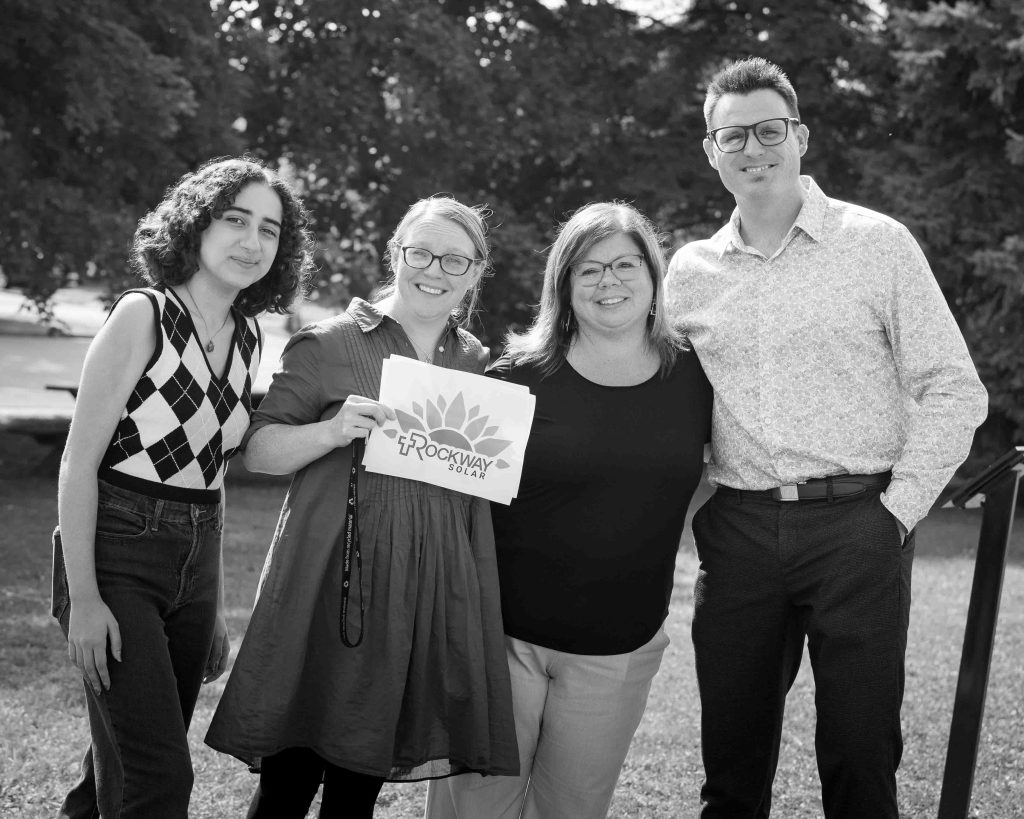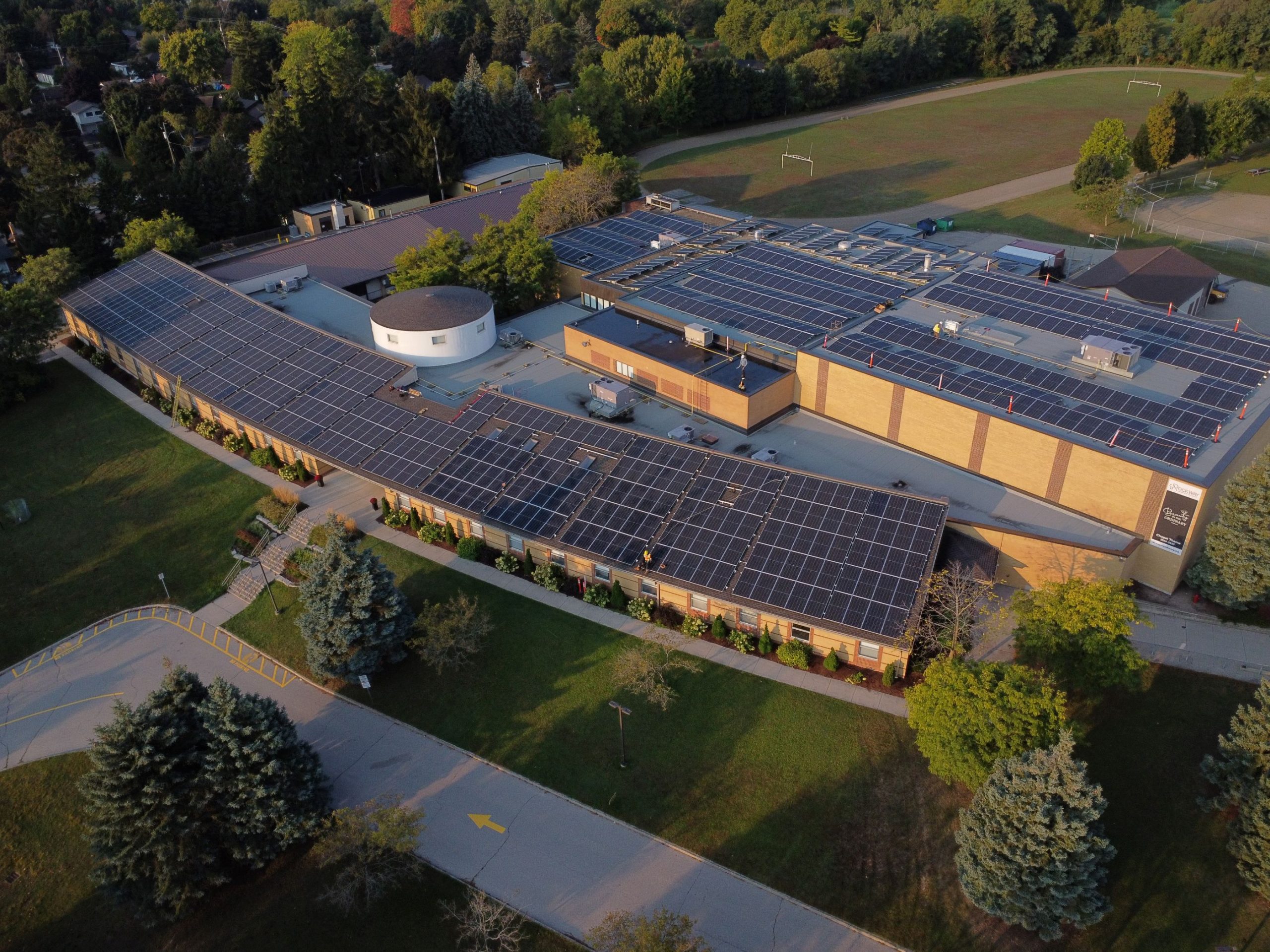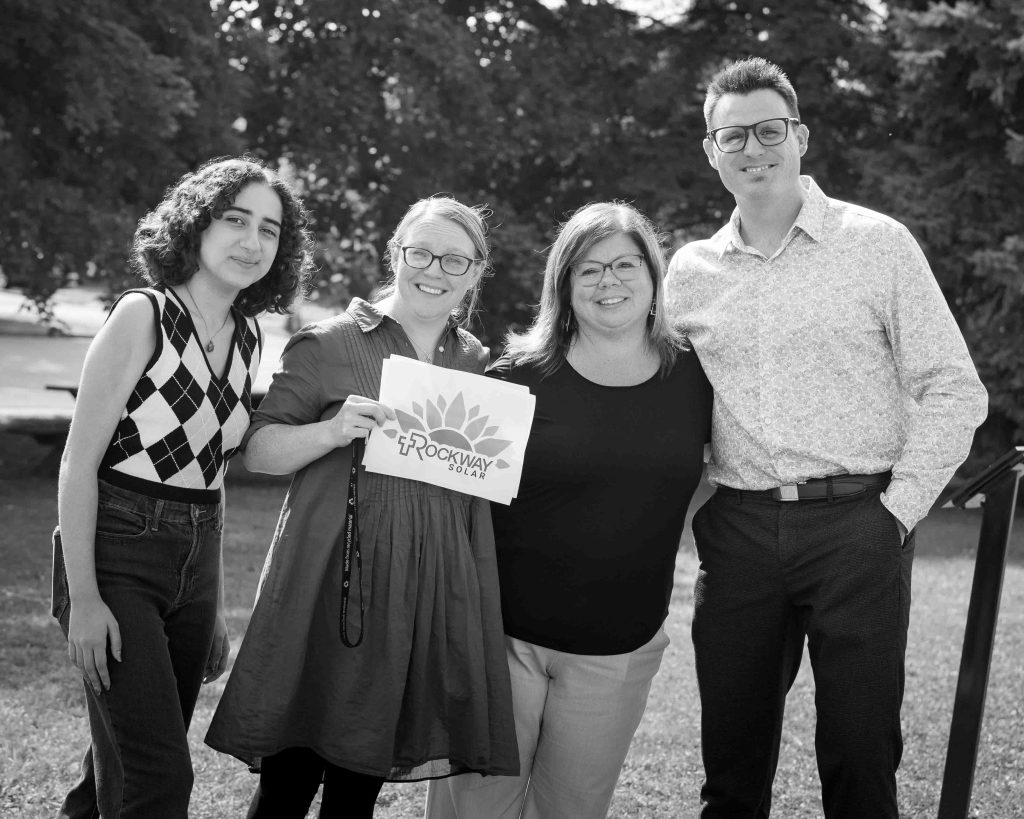An array of 875 solar panels now sits atop the roof of Rockway Mennonite Collegiate in Kitchener, Ontario. Installation was completed in mid-October by VCT Group, with connection to the power grid expected by December.
The panels are owned by CED, an alternative energy co-op. After 20 years, Rockway—which was not required to make a capital investment—will own the panels. The project serves as a proof-of-concept for CED which expects an unprecedented increase in demand for electricity over the next decade.
According to the CED website, the 500-kilowatt project “will produce enough clean electricity to cover 100 percent of Rockway’s energy needs for decades to come.” Power will go straight into the grid, and Rockway will buy power back at a slightly discounted rate.
Climate justice isn’t a new conversation for Rockway. The school installed a handful of solar panels 12 years ago. Other green initiatives at Rockway have included recycling drives, waste awareness projects, music videos, gardening, a canoe trip to clean up garbage, tree planting and a composting campaign that fed a pig.
Data management classes will work with data from the solar project, and a counter in the school will show students how much power is being created.

Sara Wahl, Rockway’s head of computer sciences, said discussions about climate justice regularly occur in the classroom in the same way that faith informs all subjects. “Climate action is very similar,” she said. “It’s a view of the world; it’s a way to be in the world.”
That said, Wahl has recently changed her approach to climate education.
“I used to think educating on the problem was my job,” said Wahl, “but now I’ve learned I have to give [students] hope—all that negative talk about the problem blew out that flame of hope.”
Wahl added, “[We’re] building a culture of how this is a thing to do.”
Alyssa Panda, a grade 12 student who has never known a world without climate change, said climate anxiety is very real and there is significant apathy among youth. Some believe the world is falling apart, so why even try. Panda says some think the only solution is to go to a different planet.
At the same time, the benefits of solar energy dim when the mining of materials required for the panels is taken into account. (Those interviewed are not aware of where the minerals for the Rockway panels were mined.)
In their book So We & Our Children May Live, Sheri Hostetler and Sarah Augustine push for a thorough analysis of green energy. “Many renewable energy industries continue to follow an extractive, colonizing logic; accumulation and perpetual economic growth are still desired outcomes. We must look beyond green growth. We need ecological justice and right relationship. . . to reduce our overall consumption of energy and of all resources.”
Rockway’s principal, Josh Hill, said, “Imperfect solutions move us closer to our goals.” He added that many students come from privilege, and that conversations on overconsumption would be the next step, not one they have taken yet. “How do we encourage one another to live more simply? For lots of folks that might seem far off and not possible now.”
But Panda said, “I’m a theatre kid. Improv has one rule: yes, and. . . So my answer is: yes, and what can we do moving forward? The thought of the solar panels existing is the ‘yes.’ The ‘and’ has started putting itself in people’s minds.”










Leave a Reply
You must be logged in to post a comment.